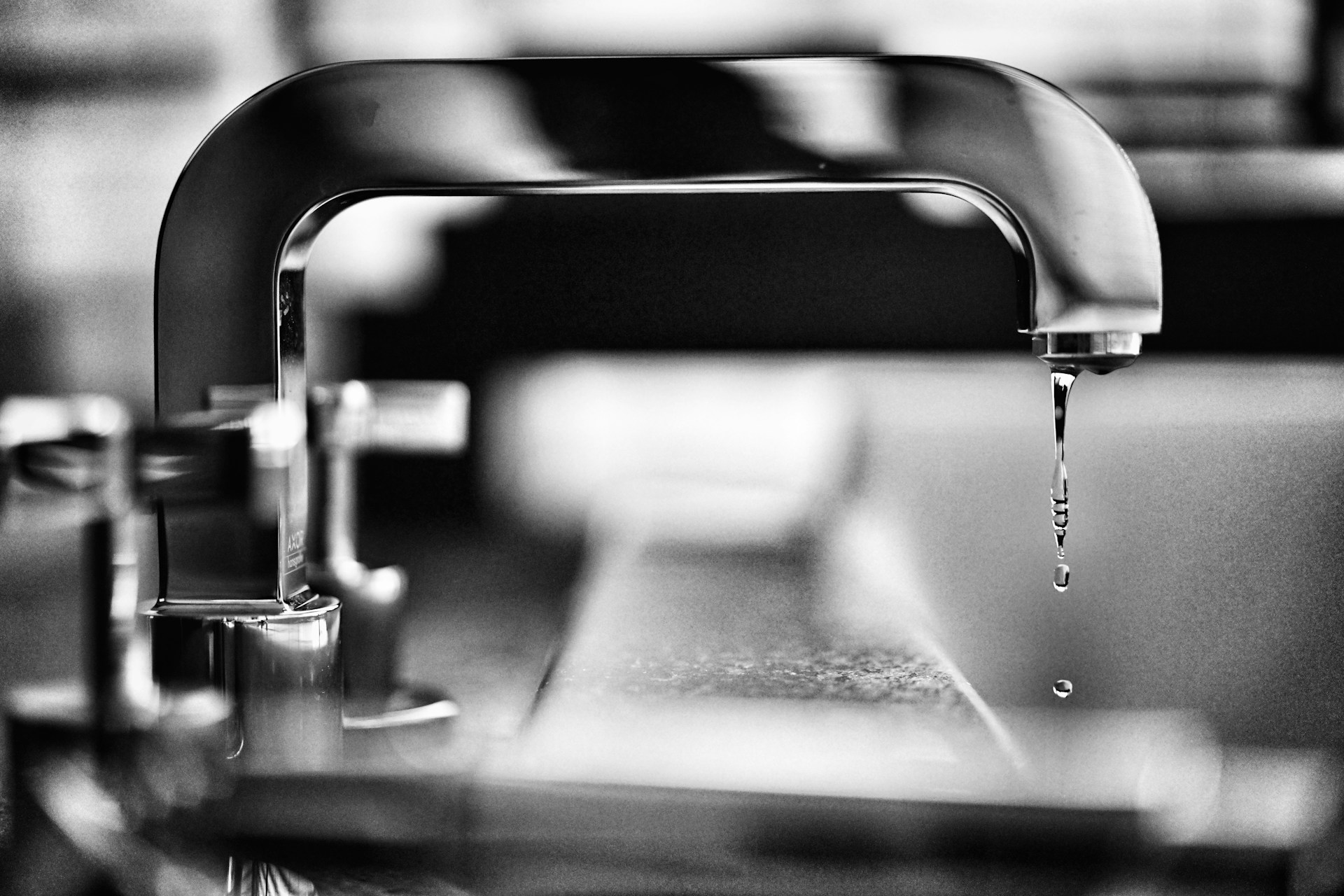PROPERTYSPARK ARTICLE
The Critical Importance of a Plumbing Inspection When Purchasing Your New Home
Congratulations! You’re now in the exciting phase of house hunting, where you’re likely imagining cozy nooks and spacious backyards for your future. But amidst all this excitement, it’s easy to overlook the less glamorous yet crucial aspects, like plumbing.
Just think: You’ve finally found the perfect home, signed all the papers, and are just about to move in when suddenly, a burst pipe turns your dream abode into a soggy nightmare.
Dreadful, isn’t it? But fear not because this is where a plumbing inspection swoops in to save the day—or rather, your new home. Before sealing the deal, let’s dive into why a plumbing inspection is an absolute must.

The Foundation of a Smooth-Flowing Home
Think of plumbing as your house’s circulatory system. It keeps everything flowing smoothly—from your morning shower to the dishes after dinner.
Now, just think of moving into your new home, excited to start this new chapter, only to discover hidden leaks, faulty pipes, or outdated fixtures lurking in the shadows.
Not only can these issues disrupt your daily routine, but they can also lead to costly repairs down the line, putting a damper on your homeownership experience.
Avoiding Hidden Hazards
While a new home’s shiny exterior may dazzle you, what lies beneath the surface could tell a different story. Without a thorough plumbing inspection, there might be potential hazards like mold, mildew, and water damage that may keep on lurking undetected, paving the way for a bigger issue later on.
These issues compromise your living conditions and pose significant health risks to you and your loved ones. You need an experienced plumber who can address your 24/7 Plumbing Emergencies.
By investing in a professional plumbing inspection, you’re ensuring that any underlying issues are identified and addressed before they have the chance to escalate into major problems, providing you with peace of mind and a solid foundation for your new home.
Uncovering Costly Surprises
Let’s be real—nobody wants to be welcomed into their new home by facing unexpected expenses. But if you conduct a comprehensive plumbing inspection, you’ll gain valuable insight into the condition of the property’s plumbing system.
This means there are fewer unpleasant surprises down the road. And you also have the golden opportunity to negotiate repairs or adjustments with the seller before sealing the deal. After all, knowledge is power, especially when it comes to making one of the biggest investments of your life.
Protecting Your Investment
Let’s talk investments for a moment. Your home isn’t just a spot to hang your hat – it’s a valuable financial asset.
You need to have a thorough plumbing inspection because it isn’t just about checking pipes; it’s about safeguarding your investment and giving you peace of mind that you’re making a well-informed decision.
You can be a first-time homebuyer or a seasoned property investor, but you need to make sure that the plumbing system is in top-notch condition, as this is key to preserving the value of your investment for years to come.
The Professional Touch
Now, you might feel tempted to take on a plumbing inspection yourself, armed with a wrench and a YouTube tutorial.
While it’s commendable to want to tackle tasks around the house, plumbing is best left to the experts. They are the ones with the knowledge, experience, and specialized tools to pinpoint potential issues accurately.
You might think that hiring a reputable plumbing service to conduct a thorough inspection is an added expense, but it’s a small price to pay for the priceless assurance that your new home is in tip-top shape. After all, peace of mind is invaluable when it comes to your living space.
What to Expect During a Plumbing Inspection
Curious about what goes on behind the scenes during a plumbing inspection? Let’s take a look:
Visual Examination
During a plumbing inspection, the plumber starts by conducting a visual examination. This entails meticulously inspecting all visible plumbing fixtures, pipes, and connections for any telltale signs of wear, damage, or corrosion. This thorough scrutiny helps the plumber to identify potential areas of concern that may require further investigation or repair.
By carefully assessing the condition of these components, the plumber can provide valuable insights into the overall health of the plumbing system and recommend any necessary actions to ensure optimal performance and longevity.
Pressure Testing
Following the visual examination, the plumbing system undergoes a critical phase known as pressure testing. This step is essential for detecting any leaks or weaknesses in the pipes that may not be immediately visible.
Pressure testing involves pressurizing the entire system with either air or water to assess its integrity. Subjecting the plumbing system to increased pressure, the plumber can identify any fluctuations that could indicate a leak or weakness in the pipes.
By following this meticulous process, the plumber ensures that even the slightest issues are detected before they escalate into major problems.
Pressure testing is a proactive measure that helps homeowners avoid potential water damage and costly repairs down the line. Homeowners can enjoy peace of mind knowing that their plumbing system is reliable and functioning optimally if they address any identified issues promptly.
Drainage Inspection
As part of the plumbing inspection process, the plumber will thoroughly assess the functionality of drains and sewer lines. To accomplish this, they utilize specialized equipment such as cameras and snake tools.
If the plumbers use these tools, they can comprehensively examine the drainage system and identify any potential blockages, clogs, or damage.
The plumber uses a camera to navigate through the pipes. This gives them a clear visual inspection of the pipe’s condition, allowing them to pinpoint any obstructions or areas of concern that may be hindering proper drainage.
Additionally, plumbers can also use snake tools to physically clear any blockages encountered along the way.
The plumber can use these advanced techniques to accurately diagnose any issues within the drainage system, from minor clogs to more significant damage.
This proactive approach enables homeowners to address potential problems before they escalate, ensuring that the plumbing system runs efficiently.
Water Heater Inspection
If your new home has a water heater, the plumber will conduct a thorough inspection to ensure it’s working properly. This inspection includes various aspects, including checking for leaks, sediment buildup, and potential issues with the heating elements.
Firstly, the plumber will inspect the water heater for any signs of leakage, which could indicate a faulty component or a damaged tank. Additionally, they’ll examine the surrounding area for water damage or corrosion, which may indicate a past or ongoing issue.
Next, the plumber will check for sediment buildup inside the water heater tank. Over time, sediment accumulation can reduce the unit’s efficiency and lifespan. By flushing out any sediment deposits, the plumber can help restore the water heater’s performance and prolong its longevity.
Furthermore, the plumber will inspect the heating elements to ensure they function correctly. This involves checking for signs of corrosion or damage and verifying that the elements are heating the water to the desired temperature efficiently.
By carrying out a comprehensive water heater inspection, the plumber can identify any potential problems early on and recommend necessary repairs or maintenance. This proactive approach helps avoid unexpected breakdowns and ensures the water heater operates safely and efficiently for years to come.
Fixture Evaluation
During the plumbing inspection, every plumbing fixture in your new home will undergo rigorous testing. From faucets to toilets, each fixture will be meticulously examined for leaks, proper operation, and water pressure.
The plumber will start by checking faucets for any signs of leakage or dripping. They’ll also ensure that the handles and knobs operate smoothly and effectively without any sticking or stiffness. They will also assess the water pressure to ensure it meets standard requirements and that there aren’t any underlying issues with the plumbing system.
Next up are the toilets. The plumber will inspect each toilet for leaks around the base or tank, as well as any signs of running water or continuous flushing. They’ll also test the flushing mechanism to ensure it’s working correctly and efficiently.
If they can find any deficiencies or malfunctions during the inspection, the plumber will make note of them and repair them accordingly. This might involve tightening connections, replacing worn-out parts, or addressing more significant issues that require professional attention.
As they will be thoroughly testing all plumbing fixtures, the plumber can provide you with a comprehensive overview of the condition of your new home’s plumbing system. Any issues discovered during the inspection can be addressed promptly, giving you peace of mind and confidence in your investment.
Final Thoughts
When you are looking to buy a home, don’t underestimate the significance of having the plumbing inspected by a professional plumber.
If you skip this crucial step, it could spell trouble later on, with headaches and unexpected expenses. You need to prioritize a thorough plumbing inspection before sealing the deal to safeguard your investment and guarantee your new home’s comfort, safety, and durability. Remember, a little effort now can prevent a deluge of problems in the future.
Learn how to Become a Top Agent with the Guaranteed 5 Min/Week System
No social media experience needed
Free webinar seat (limited quantities)
Learn the guaranteed 5 min/week system
Become a social media superstar
Constantly get new leads
Beat the competition
Get a special webinar deal
This Agent Tripled His Commissions Just With Social Media
Learn how this real estate agent tripled his commissions just with social media and how you too can become a social media superstar.
Why You Can’t Just “Boost” Your Real Estate Listing
That big blue button has tempted you before right? You want to Facebook Boost your Real Estate listing. Find out why you shouldn’t!
How Much Should Realtors Spend On Social Media
A question we get often from Realtors is “how much should I spend on social media?” Find out exactly how much to spend and how to spend it without getting ripped off!


